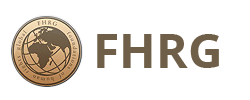Human Rights and Politics
The international political arena came to recognize human rights in 1948 when countries agreed to the Universal Declaration of Human Rights, which states that every human being is born free and none should be held in servitude.
Also, no one should be subject to arbitrary arrest, detention, degrading punishment, inhumane treatment and torture. Everyone has the freedom of movement and the right to leave the country. People should also enjoy the freedom of thoughts, religions, and expression.
Although every person deserves the natural right to life, liberty and personal security, it is not uncommon for a lot of people to suffer from human rights violation due to political reasons. Human rights violation is particularly rampant in developing countries where the government is corrupt or lack resources to ensure the fulfillment of basic rights.
The government in Sudan, for example, has long been accused as a human right violator who orchestrates the genocide in Darfur. His administration collaborates with a militia called Janjaweed to raid villages and kill everyone who is not Arab African. His action is an outright violation of human rights, yet the United Nations Security Council fails to stop him as China has vetoed the bill on boycotting the Sudanese government. China refuses to take action against the genocide in Sudan because of a political and financial reason: China needs to maintain a good diplomatic relationship with Sudan in order to purchase the oil from Sudan.
Another example of human right violation due to political reasons is the Guantanamo Detention Center where alleged terrorists are held. Many of the captives are not in fact terrorists, but once they are suspected by the U.S. authority, they are subject to torture. Some even lost their life. This is a big scandal for the United States as it is one of the strongest advocate for human rights. The Guantanamo Detention Center first developed to enhance homeland security after the 911 terrorist attack. Gradually, the institute becomes a spot for human rights violation.
As stated in the Universal Declaration of Human Rights, violation of human rights is not limited only to inhumane treatment but to restrictions of movement. In many African refugee camps, the refugees are prohibited by their host government to leave the camp as the government worries that the refugees will take away the employment opportunities of the local people. The rights of these refugees are violated as they are held in the camp as if they are prisoners.
Politics in the global arena often blocks the protection of human rights, particularly within the UN where the member states are hesitant to act on even outrageous human rights violations to protect the underprivileged and vulnerable groups in the world.
